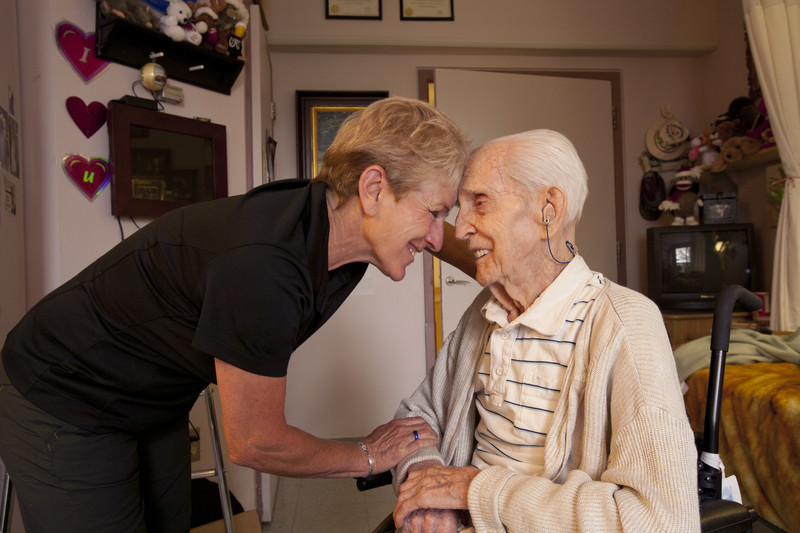Helping Aging Adults with Alzheimer’s or Other Chronic Diseases in Ottawa
Uncategorized | September 14, 2018
According to the Alzheimer’s Association, over 5 million Americans over age 65 now have the disease. This devastating disease causes cognitive and memory problems, along with behavior changes that will affect work, family and social relationships. Eventually, basic activities of daily living diminish.
Common Conditions in Alzheimer’s Patients
Americans with Alzheimer’s Disease (AD) have the same health issues as other older adults. Most people with dementia (95%) suffer from at least one chronic disease or health condition besides AD. Some of these medical problems may include heart disease, diabetes, stroke, and arthritis. Diseases caused by infections also are common.
Health Management
Impaired memory, judgment, and ability to reason make management of one’s own healthcare impossible. An AD patient won’t be able to safely follow medication instructions and they cannot recognize that their condition is worsening.
Caregivers Can Help
As a caregiver of an Alzheimer’s patient, you may be able to help reduce the dangers and discomfort of their chronic disease. Oversee the older patient’s safety and nutrition, and be sure he or she gets adequate exercise and sleep. Here are some tips:
-
Create a safe living area. Since falls can be common, secure grab bars in the bathrooms. Use a shower bench so the adult can safely be seated during shower time.
-
Promote healthy eating. The AD patient needs to be provided with healthy foods, especially for conditions such as diabetes, high blood pressure or cholesterol. Prepare homemade meals, if possible.
-
Encourage exercise and activity. Arthritis and other conditions are problems that become more challenging as the disease gets worse. The adult might be able to use a stationary bike, exercise balls, or stretch bands. A walk will help, as well.
-
Resolve sleep problems. Sleeping is often a challenge for seniors with AD. Create a healthy sleep environment to promote better rest at regular times for sleeping and waking. Make sure the bedroom temperature is comfortable.
Additional Considerations
Remember that the AD patient may not be able to tell you when something hurts or is physically wrong. Note whether there are signs of pain or discomfort.
Someone with AD won’t be able to give accurate details about symptoms or problems with medications. They may not have any concept of time, and this worsens as the disease progresses.
Consult with the patient’s doctors and specialists for information and help. Talk with family on a regular basis. When working with a person who suffers from Alzheimer’s or other chronic conditions or diseases, keep yourself surrounded by others who care.
Individualized Home Care Options
Long-Term Home Care, 24 Hour Home Care & Short Term Care Options Customized for You







